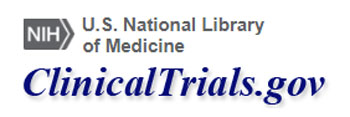
One of the major challenges in health science today is that not enough patients participate in clinical trials and other studies. Without volunteers willing and able to participate in studies testing new treatments or therapeutic approaches for cancer or Alzheimer’s, for example, researchers cannot test their effectiveness. There are many reasons for the lack of participation in medical research: Patients often are not aware of studies, or they don’t see any direct benefit from participating. Many clinical trials for new cancer treatments, for example, have been delayed or even cancelled altogether because of the difficulty of recruiting participants.
In research testing new medications or behavioral treatments for substance use disorders, the obstacles to recruiting study volunteers are even more daunting. Just finding participants can be a challenge, since they may not intersect with the healthcare system for their addiction, the same way someone with cancer or Alzheimer’s would. Only a fraction of people with substance use disorders receive care from physicians who may be in a position to know about or link them to research studies being planned. Most recruitment for clinical trials related to opioid addiction medications, for instance, is done via ads placed at large opioid treatment centers where patients on methadone receive their daily doses.
People with substance use disorders already face stigma and the fear of further social or legal consequences of their addiction, and this deters potential volunteers from signing up to participate in research. Some distrust the medical profession altogether. Many people with addiction do not want or believe they need treatment at all. Additionally, because many people with addictions who might otherwise want to participate in a trial are unemployed, poor, or homeless (perhaps as a result of their substance use), they may lack the resources or access to transportation necessary to visit a hospital or research center regularly. Often as many as half or even more than half of participants recruited for a trial are not able to complete it.
If you or a friend or family member have an addiction, you should know the many values of participating in scientific research. Clinical trial participants have access to top specialists in treating their disorder, and access to high-quality medical facilities. They sometimes receive cutting-edge treatments before they are more widely available. Study participants are also given compensation for their time and inconvenience; frequently they are also reimbursed for transportation and other expenses.
The less tangible benefits of participation are equally important. For one thing, it provides opportunities to have your questions answered and gain knowledge about your disorder. Mainly there is the reward of contributing to scientific knowledge, and knowing that you are helping the many thousands of people suffering from addiction. Every medicine that makes our lives possible, from aspirin and antibiotics to blood pressure medications and cancer chemotherapies, was the result of thousands of people participating in clinical trials. The same is true for the existing treatments for substance use disorders and the many more treatments we hope to have in the future.
Scientists studying new treatment approaches for addiction must always be thinking about how they can make their research studies more practical and feasible in the real world. They must make study participation easy and appealing and the studies accessible—including access at odd hours or weekends for those whose jobs or school prevent participation during regular work hours. Also, people with addictions often use multiple substances, and this commonly excludes them from studies testing treatments for a single substance, due to strict criteria on who can be included in a trial. Yet the reality is that addiction is complex, and often involves not only use of multiple drugs but also co-occurring mental and physical illnesses. Designing more inclusive studies and clinical trials that can take this complexity into account will be necessary for scientific advancement in treating and preventing addiction.
People with drug addiction who are excluded from participating in a particular trial for some reason should not get discouraged. They may be eligible for another trial.
An “all hands on deck” approach is needed to confronting America’s current drug crisis, and the needed hands must include families and individuals directly affected by substance use disorders. By increasing participation in research by those who most stand to benefit, we can find solutions to the complex addiction issues facing our nation today. It is also an opportunity for individuals suffering from addiction to participate in clinical research, just as people with other medical conditions do.
For more information on the benefits of participating in a clinical trial—for addiction or any other disease—visit https://www.nih.gov/health-information/nih-clinical-research-trials-you. Providers can learn about trials to recommend to patients here: https://www.nih.gov/health-information/nih-clinical-research-trials-you/finding-clinical-trial
If you are interested in Clinical Trials being run by NIDA, please see our Clinical Trials Locator tool.

